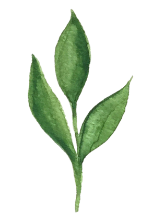Seán Mac Diarmada
Seán Mac Diarmada is most famously remembered as one of the seven signatories of the Irish Proclamation, the document issued by the IRB on April 24th, 1916 which proclaimed Irish independence from the United Kingdom of Great Britain and Ireland. His role in the Easter Rebellion goes much further than that, with many historians now considering him to be the architect of the revolutionary 1916 events.
Seán Mac Diarmada, known originally as John MacDermott, was born on 27th January, 1883 and grew up in Corranmore near Kiltyclogher. He was the eighth of ten children born to Daniel and Mary McDermott. The family house, a thatched cottage on a small holding, is the sole intact family home of any of the 1916 Proclamation signatories. It is under the management of the OPW and during April – August 2016 is open to the public Tuesdays – Saturdays 10am – 5pm. Admission is free but bookings are advised. See more on Kiltyclogher Heritage Centre website.
Seán Mac Diarmada studied in the local Corracloon School (see duchas.ie). He studied for a scholarship by correspondence in an effort to become a teacher but failed the mathematics exams. He worked briefly as a gardener in Edinbirgh at age 15. He returned home and studied Irish, book-keeping and shorthand at night school in nearby Dowra, Co Cavan, where he was influenced by the nationalism of his teacher.
He moved to Belfast as a tram conductor and there he was sworn into the Irish Republican Brotherhood (IRB)
in 1908. He soon became one of the few people to work exclusively for the Republican cause, being paid as a full time organiser from 1906 and becoming the IRB’s full time National Organiser in 1908. He returned to Leitrim and canvassed extensively in the 1907â8 North Leitrim parliamentary by-election campaign waged for Sinn Féin by Charles Dolan.
In 1910 he became manager of the radical newspaper Irish Freedom and as the national organizer for both the IRB
and Sinn Féin he travelled extensively throughout the country, openly recruiting for Sinn Féin and clandestinely for the IRB. He ensured that IRB members were placed in key roles in nationalistic organisations including the Gaelic League, GAA and Celtic Literary Society.
In Autumn 19911, Mac Diarmada contracted polio, was hospitalised for several months and thereafter walked with a limp and used a stick. However, he continued his recruiting and organising with the same relentless energy. Mac Diarmada, was one of the original members of the Irish Volunteers and worked to bring that organization under IRB control. In May 1915 he was arrested in Tuam, County Galway under the Defence of the Realm Act for giving a speech against enlisting into the British Army. He was released four months later.
Following his release he became central to the Military Council organising the 1916 Rising. He played a critical role in the events of Easter week 1916, from ordering the detention of Bulmer Hobson to overseeing the evacuation of the GPO. Throughout the Rising he was based in the GPO as adjutant to the Commander-in-Chief, James Connolly, organising many aspects of the battle as the week progressed.
After being taken prisoner and identified as a signatory of the Proclamation, Mac Diarmada conducted a spirited response to the allegations at his court martial but was found guilty of participating in armed rebellion. Seán Mac Diarmada was executed by firing squad in the Breakers’ Yard of Kilmainham Jail at 3.45am on May 12th 1916.
Follow this link to the Kiltyclogher Heritage Centre Brochure.
Kiltyclogher Heritage Centre Brochure
Further Reading:Seán Mac Diarmada by Lawrence William White on centenaries.ucd.ie
Seán Mac Diarmada on wikipedia
Seán Mac Diarmada article in the Irish Examiner
Interesting article about Seán Mac Diarmada by Dermot McEvoy for Irish Central
From Gerard MacAtasney’s book on Seán MacDiarmada in History Ireland
